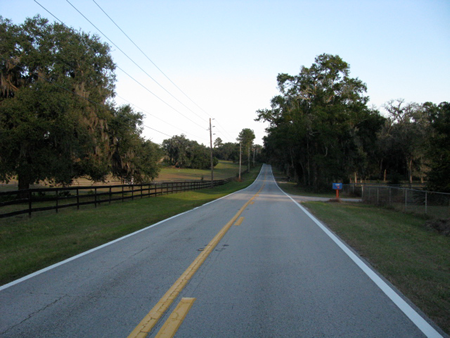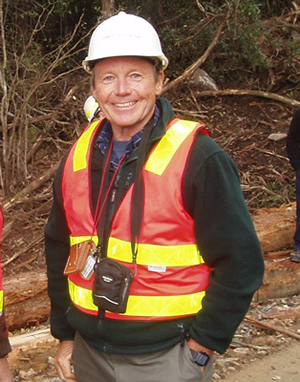
The Transportation Research Board’s (TRB) 11th International Conference on Low-Volume Roads will be held 12 – 15 July 2015 in Pittsburgh, Pennsylvania. LVR construction and maintenance may seem like a less-important matter to some, but these roads represent the majority of roads in the world; and, often, they provide the vital connection between agriculture, energy, and raw materials (e.g., mining).
Safe, durable low volume roads are essential to modern life.
TRB’s quadrennial conference provides an update on LVR management, design, construction, safety, maintenance, and related topics. Those who administer, plan, design, build, or maintain LVRs will learn innovative ways of managing low-volume road systems.
Furthermore, this is an international event, providing technology transfer that is applicable to local, state, and federal agencies; universities; private firms; NGOs; and international entitites.
The participation is generally between 250 and 300 professionals who represent the range of stakeholders in the international LVR community.
LEARN MORE & REGISTER ONLINE
COMMENTS ON LOW VOLUME ROADS

In a 2012 interview with Geosynthetica, engineer Gordon Keller spoke about some of the difficulties with LVR in infrastructure and how they are not also planned for or funded appropriately as road needs change with the times.
“A big issue today [for low volume roads] is not only with farming,” said Keller, “but energy development in the United States is putting more, larger, and heavier vehicles on the roads than traditional uses. Ethanol production is taxing rural farm roads, while oil and gas developments are damaging roads in the East (Pennsylvania) and the Midwest. Wind farms and their construction pads, hauling turbines, etc. are taxing many rural roads nationwide.”
Looking beyond the United States, Keller cites not just access to resources and agriculture but safety. In India, roadway accidents are one of the top three causes of death. LVR design, from this vantage, puts the geotechnical engineer in a position to protect public health and safety.
“The appropriate application of basic engineering principals and environmental mitigations in road work is key,” said Keller. “Road training is important to promote long-term cost-effectiveness and environmental awareness.”
Keller worked with the US Forest Service for many years and has served as an instructor on low volume roads seminars around the world.
He co-authored an LVR engineering field guide with James Sherar, which is available here.
TRB LVR ORGANIZERS
The international organization and partnership behind the 11th International Conference on Low Volume Roads is impressive.
Organized by
- Transportation Research Board
Conference Committee
- Committee for the 11th International Conference on Low-Volume Roads (AFB99D)
- Standing Committee on Low-Volume Roads (AFB30)
Sponsored by
- Bureau of Indian Affairs, U.S. Department of the Interior
- Federal Highway Administration, U.S. DOT
- Fish and Wildlife Service, U.S. Department of the Interior
- Forest Service, U.S. Department of Agriculture
Cosponsored by
- Center for Dirt and Gravel Roads Studies at Pennsylvania State University
- University of Belgrade
- Pontificia Universidad Catolica de Chile
- University of Pretoria, South Africa
Pooled Fund Project Participating States
- Iowa Department of Transportation
- Illinois Department of Transportation
- Louisiana Department of Transportation and Development
- New York State Department of Transportation
- Ohio Department of Transportation
- Pennsylvania Department of Transportation
- Virginia Department of Transportation
- Wyoming Department of Transportation












